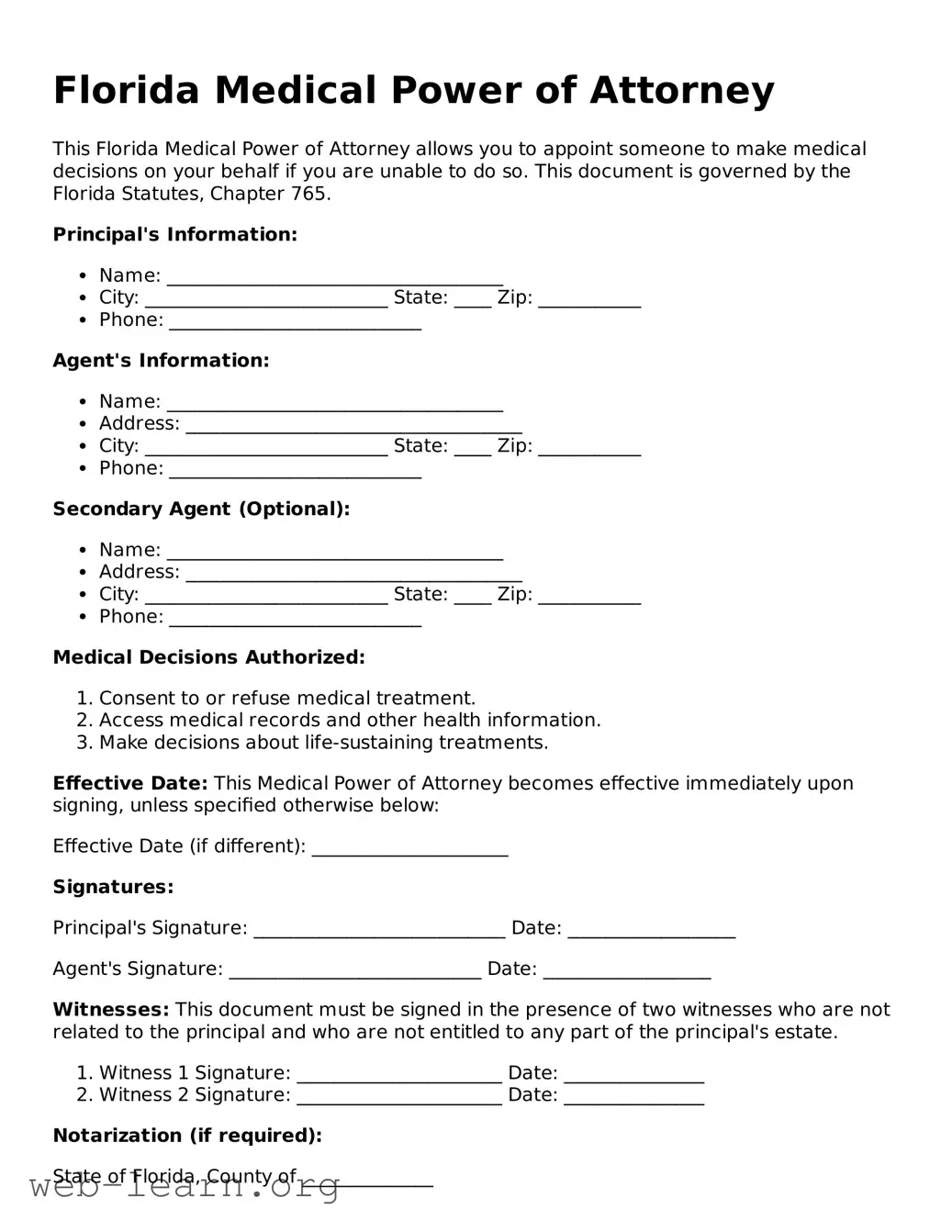Florida Medical Power of Attorney
This Florida Medical Power of Attorney allows you to appoint someone to make medical decisions on your behalf if you are unable to do so. This document is governed by the Florida Statutes, Chapter 765.
Principal's Information:
- Name: ____________________________________
- City: __________________________ State: ____ Zip: ___________
- Phone: ___________________________
Agent's Information:
- Name: ____________________________________
- Address: ____________________________________
- City: __________________________ State: ____ Zip: ___________
- Phone: ___________________________
Secondary Agent (Optional):
- Name: ____________________________________
- Address: ____________________________________
- City: __________________________ State: ____ Zip: ___________
- Phone: ___________________________
Medical Decisions Authorized:
- Consent to or refuse medical treatment.
- Access medical records and other health information.
- Make decisions about life-sustaining treatments.
Effective Date: This Medical Power of Attorney becomes effective immediately upon signing, unless specified otherwise below:
Effective Date (if different): _____________________
Signatures:
Principal's Signature: ___________________________ Date: __________________
Agent's Signature: ___________________________ Date: __________________
Witnesses: This document must be signed in the presence of two witnesses who are not related to the principal and who are not entitled to any part of the principal's estate.
- Witness 1 Signature: ______________________ Date: _______________
- Witness 2 Signature: ______________________ Date: _______________
Notarization (if required):
State of Florida, County of ______________
Subscribed and sworn before me on this ____ day of __________, 20__.
Notary Public: ____________________________ (Seal)
This document reflects your wishes regarding medical treatment when you are unable to communicate them yourself. Keep this document in a safe place and provide copies to your agents and family members.
